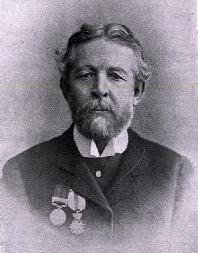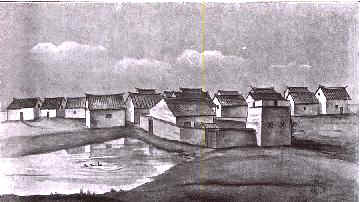| The Ching Monopoly | The Camphor Files | Takao Club | ||||||||||
|
To William A Pickering C M G
|
|
An inspiration to all the 'tide waiters' of today. |
||||||||||
| Early History | ||||||||||||
|
Records
exist to show that Formosan camphor was identified and sought after as early as
the 15th century. The desired product then were the natural camphor
crystals found within the trunk of the Camphor tree which are still valued today
for embalmment.
In the 16th century it is recorded that the camphor forests extended down to the western plains of Ilha Formosa (Taiwan). The Ching Emperor declared a Monopoly on camphor in the early part of the 18th century, with any infringement being punishable by death. Indeed in 1720 over 200 people were decapitated under this edict. The result, being Taiwan, was predictable. A rebellion ensued and the authority of the Ching Emperor was usurped and effectively not restored in any full sense until compromise was sought with the 'barbarians'. The middle of the 19th century brought change. A sudden growth in demand had emerged in North America and Germany, and the 'barbarians' were knocking on the gate for trading opportunities, supported by the gunboat. For the Chinese it was a harsh jolt to global reality; for the 'outsiders' it was a chance for profitable adventure. |
||||||||||||
| Post-Treaty Trade | ||||||||||||
|
Since
the Ching Court still claimed a monopoly over the camphor trade yet
exerted virtually no control, all ports in Taiwan were effectively open for trade
. All attempts at enforcement were quickly satisfied by
bribes as the Tao-tais (local mandarins) had little interest in
suppression of dissidents when they could profitably turn a blind eye.
Further to the Nanking Treaty of 1842, foreign interest in the Formosa camphor trade led to the arrival of W M Robinet, an American, at Takao Port (Kaohsiung) in 1855. His successful voyage in trading camphor ignited the interest of some very powerful forces. In 1860 treaties were signed that 'opened' certain Chinese ports to foreign trade. On the positive side these included Taiwanese ports, on the negative side they restricted trade to Taiwan-fu (Tainan) and Tamsui. By 1865 the well-connected opium-trading powerhouses of Jardine Matheson and Dent & Co had established themselves in Takao and Tamsui. |
||||||||||||
| Goche Incident | ||||||||||||
|
Further
to the 1860 treaty, an impossible situation had been created in the eyes
of 'foreigners'.
The normal channels of 'squeeze' had become arbitrary. The normal channels of trade had become restricted. |
Camphor depot Go-che : Drawing by Pickering
|
|||||||||||
|
In
the presumed spirit of the times, Elles & Co, as contractors of Dent & Co,
contrived to purchase some 6,000 dollars-worth of crude Camphor for
shipment from Go-che, a small but then important port about 60 miles north of Taiwanfoo (Tainan).
By these means Elles' agent sought to open a valuable if illegal trade route.
The Tao-tai asserted the Ching Dynasty control over this shipment and it was seized. Although the seizure may not have been illegal, the British considered that a subsequent refusal by the Tao-tai to grant investigation rights was. Accordingly the Consulate supported Mr Pickering's trip to Goche and his actions taken there. In Goche Mr Pickering set about asserting rights over the camphor that he considered now the legal property of Elles & Co. Mr Pickering was initially successful in this endeavour and obtained physical control of the company warehouse in Goche, together with tacit approval from the district officer in Lukang. However Mr Pickering was finally forced to flee and escaped by sea to Tamsui, despite a bounty on his head of 500 dollars from the Tao-tai. The British authorities, in the person of the consul in Taiwan-foo (today Tainan, then the capital), were incensed and a gunboat was dispatched to attack Anping (Tainan). The Chinese were quickly routed and the Camphor monopoly was lifted in 1868, although trade was now absolutely restricted to the Treaty ports of Takao (Kaohsiung), Tamsui and Keelung.
|
||||||||||||
|
( PENDING ) |
||||||||||||
|
||||||||||||

